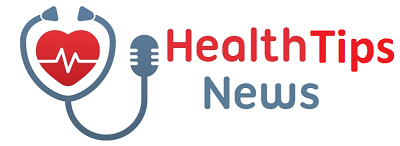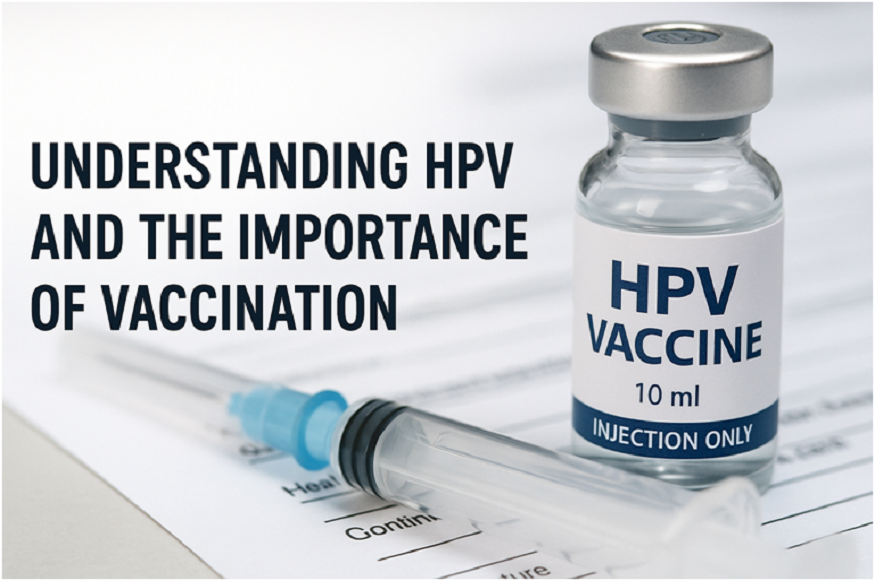One of the most prevalent STIs worldwide is the human papillomavirus, or HPV. In many communities, there is still a lack of knowledge about HPV and the significance of vaccination, despite the virus’s prevalence and the possible health risks linked to specific strains. Understanding how this virus functions and how easy preventive measures like vaccination can make a big difference is more crucial than ever as the number of cases of HPV-related cancers and illnesses rises worldwide.
What is HPV?
Human papillomavirus, or HPV for short, is a family of more than 100 viruses. These viruses can impact the mouth, throat, and genital area, among other parts of the body. Some forms of HPV can cause major health issues, such as genital warts and cancers like cervical, vaginal, penile, anal, and throat cancers, but the majority of HPV infections are benign and resolve on their own.
Because HPV is so widespread, unless they are vaccinated, nearly everyone who engages in sexual activity will get it at some point in their lives. Intimate skin-to-skin contact, rather than just sexual contact, is how it spreads. This emphasizes how crucial it is to discuss HPV honestly and look for protection.
Types of HPV and Their Impact on Health
Generally, HPV strains fall into one of two categories:
- Low-risk HPV: These strains are not linked to cancer, but they can result in genital warts.
- High-risk HPV: These strains are connected to a number of cancers, especially female cervical cancer.
In India, cervical cancer continues to be a major health burden and is the fourth most common cancer in women globally. Its incidence can be significantly decreased by early detection and preventative measures like vaccination.
Why HPV Often Goes Undiagnosed
Until HPV develops into more serious conditions like warts or precancerous changes in the cervix, it frequently exhibits no symptoms. Because of this silent nature, routine screenings—such as Pap smears and HPV tests—are crucial, particularly for women who are 21 years of age and older.
You can maintain control over your reproductive health by seeing a reputable gynecologist in Andheri West. Co-testing (Pap smear + HPV test) is now available in clinics, which improves the likelihood of early detection and prompt intervention.
Importance of HPV Vaccination
HPV Vaccination at a Multispeciality Clinic in Andheri West
One of the best ways to guard against HPV-related illnesses is to get vaccinated at a reputable Multispeciality Clinic in Andheri West. The vaccine prevents the virus from infecting your body by boosting the production of antibodies by your immune system.
Currently, Cervarix, Gardasil, and Gardasil-9 are the three FDA-approved HPV vaccines that are accessible worldwide. Gardasil and Cervarix are frequently used in India. These vaccines offer protection against HPV strains 16 and 18, which are the most dangerous and cause most cervical cancers.
Who Should Get Vaccinated?
The HPV vaccine is most effective when administered before an individual becomes sexually active.
- Recommended Age Group: Boys and girls between the ages of 9 to 14 are the ideal candidates.
- Catch-Up Vaccination: Women up to age 45 and men up to age 26 can also benefit from catch-up vaccination, depending on individual risk factors.
A gynecologist in Andheri West can help determine whether you’re eligible for the vaccine and guide you through the vaccination schedule.
HPV Vaccine Myths vs. Facts
There are many misconceptions surrounding the HPV vaccine. Let’s clear up a few common ones:
Myth 1: HPV vaccine promotes early sexual activity.
Fact: The vaccine is a preventive measure and does not influence personal behavior.
Myth 2: Only women need the vaccine.
Fact: HPV affects both men and women. Vaccinating boys helps reduce transmission and protects them from cancers as well.
Myth 3: If I’m already sexually active, I don’t need the vaccine.
Fact: Even if you’ve been exposed to HPV, the vaccine can still offer protection against strains you haven’t yet encountered.
These myths often prevent individuals from seeking timely protection. Don’t let misinformation risk your health—talk to your doctor at a Multispeciality Clinic in Andheri West to get the facts straight.
Role of Regular Screening Even After Vaccination
Even after getting vaccinated, regular screenings remain crucial. The vaccine doesn’t protect against all HPV strains, so routine check-ups with your gynecologist in Andheri West are vital for long-term health.
Pap smears and HPV tests help detect abnormal cell changes in the cervix early, allowing for successful treatment and prevention of cancer progression.
Side Effects and Safety of the HPV Vaccine
HPV vaccines are safe and well-tolerated. Most side effects are mild and temporary, including:
- Pain or redness at the injection site
- Low-grade fever
- Dizziness or fainting (especially in teens)
Millions of doses have been administered worldwide, and extensive studies confirm the vaccine’s safety and effectiveness. Always consult your doctor for any concerns or allergies before beginning the vaccination process.
Cost and Accessibility of HPV Vaccine in India
The cost of the HPV vaccine in India has significantly reduced in recent years, especially with the introduction of locally manufactured options. You can now receive the vaccine at a MultispecialityClinic in Andheri West without burning a hole in your pocket. Additionally, some clinics may offer subsidized rates or government-supported programs for young girls.
Ask your healthcare provider about available options and whether you qualify for any cost-effective vaccination plans.
Final Thoughts: Prevention is Better Than Cure
HPV may be common, but it is preventable. With the availability of reliable vaccines and regular screenings, there’s no reason to delay action. Whether you’re a parent considering vaccination for your child or an adult looking to protect yourself, now is the time to consult a trusted gynecologist in Andheri West or visit a Multispeciality Clinic in Andheri West for more information.
Taking control of your health today can save you from a host of complications tomorrow. Let’s break the silence around HPV and prioritize prevention, education, and early action.

